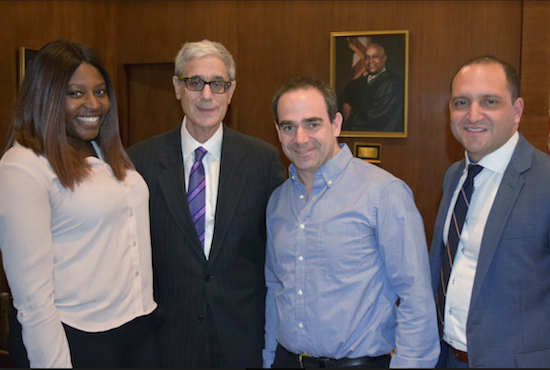Brooklyn Bar Association hosts commonsense cyber security for lawyers

The Brooklyn Bar Association’s Computer and Technology Committee hosted a continuing legal education (CLE) seminar in Brooklyn Heights on Monday titled “Common Sense Cyber Security” where lawyers learned best practices to avoid being hacked.
BBA Trustee Daniel Antonelli served as the moderator for the two-hour discussion that featured David Bensinger of Bensinger Technology. The topics included ways to help identify potential risks to understanding how to increase cybersecurity safeguards within a law firm to protect client and personal information.
“David helps my firm with our IT needs and we really appreciate his services which is why I’ve invited him to come speak on cyber security,” Antonelli said. “It has become something that people can’t ignore because you read about it in the newspaper every day — there was Equifax, the 2016 Democratic National Committee (DNC) email hack and divorce attorneys know about the Ashley Madison hack. That’s just a short list.”

Brooklyn Boro
View MoreNew York City’s most populous borough, Brooklyn, is home to nearly 2.6 million residents. If Brooklyn were an independent city it would be the fourth largest city in the United States. While Brooklyn has become the epitome of ‘cool and hip’ in recent years, for those that were born here, raised families here and improved communities over the years, Brooklyn has never been ‘uncool’.